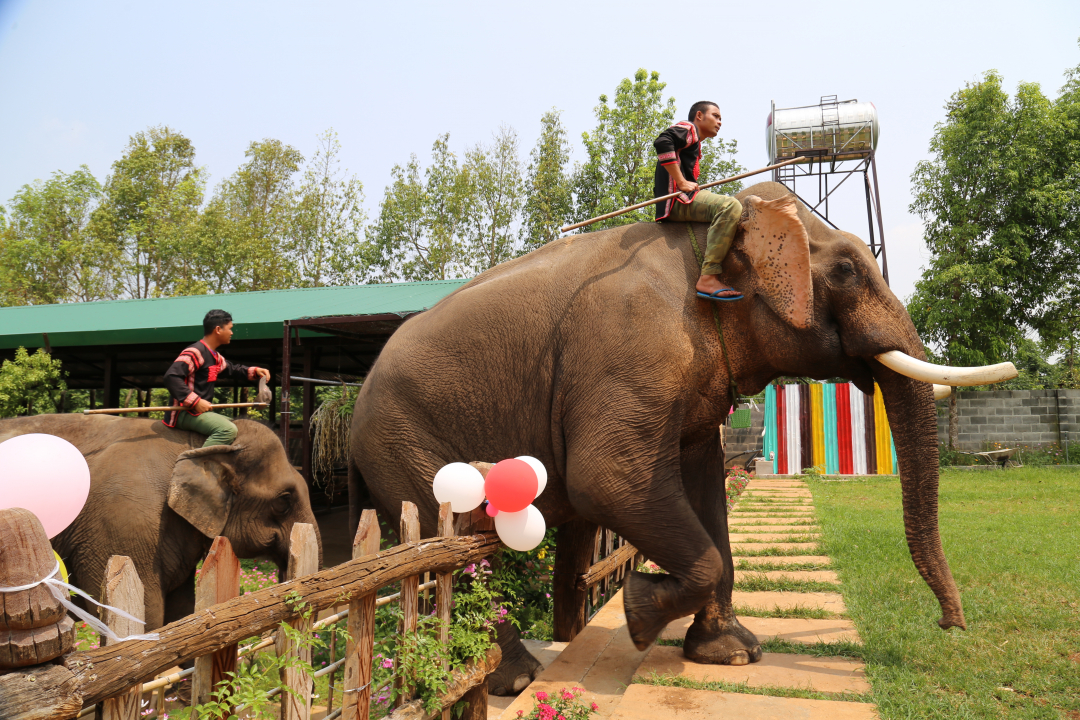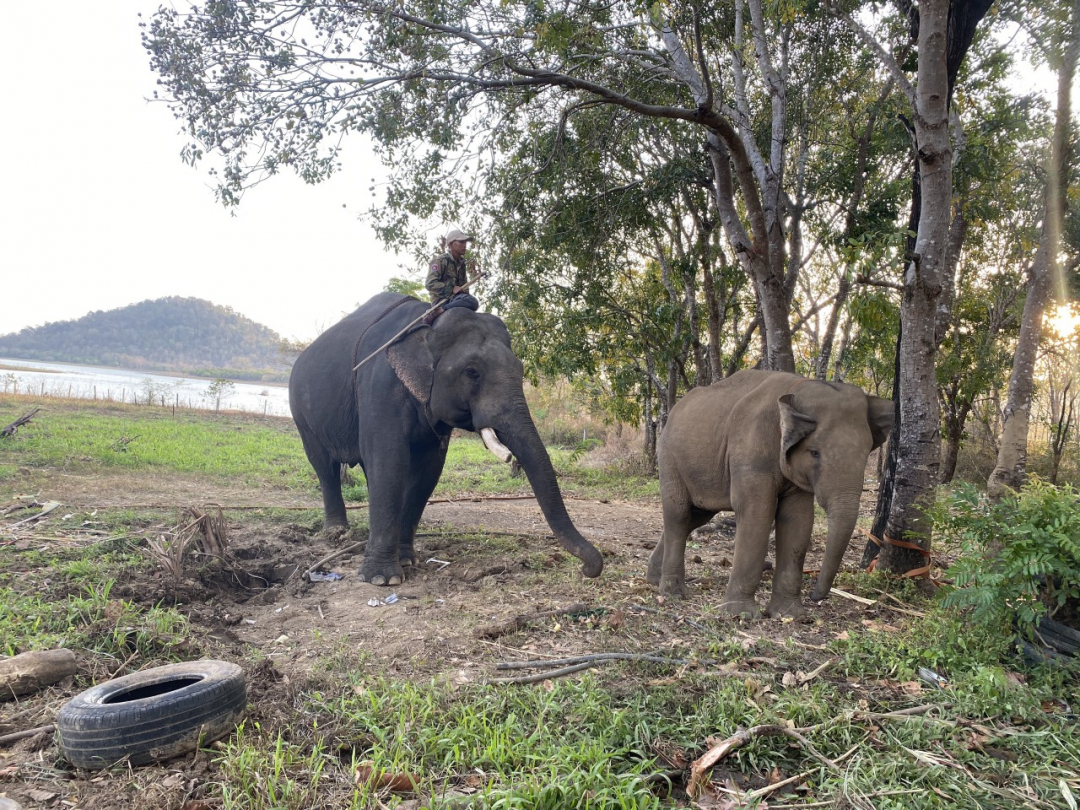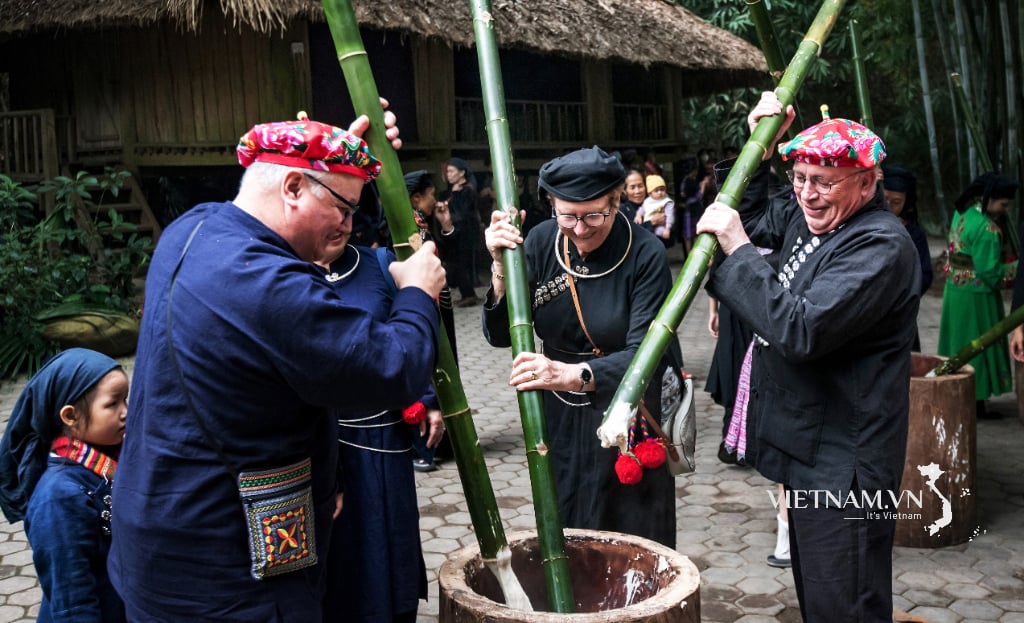08:33, 14/05/2023
With the goal of preventing the extinction of domesticated elephants, Dak Lak province has professionalized elephant conservation efforts through specific policies. However, conserving and developing the elephant population is not an easy task.
Professionalization
Elephant conservation in the province has received significant attention since the establishment of the Elephant Conservation Center in 2011. Furthermore, the Provincial People's Council issued Resolution No. 78/2012/NQ-HĐND on December 21, 2012, stipulating several policies for elephant conservation in Dak Lak province. As a result, elephant conservation efforts have become more professional and have achieved some initial results. Modern facilities and equipment are in place to support conservation work; there is a workforce of experienced engineers and veterinarians; a system of legal regulations on elephant conservation has been developed; and public awareness campaigns have helped to improve people's understanding of the importance of elephants and conservation. In addition, it has attracted the support of many international organizations such as: Animals Asia, International Elephant Care Organization, Wildlife Welfare Organization, World Wildlife Fund, North Carolina Zoo (USA), Rotterdam Zoo (Netherlands), Thailand Elephant Conservation Centre...
 |
| A domesticated elephant belonging to a family in Lak District. |
The Dak Lak Elephant Conservation, Animal Rescue, and Forest Management and Protection Center currently manages and cares for 5 domesticated wild elephants and those transferred to it by organizations and individuals. Since 2012, the center has treated over 200 emergency cases and conducted regular health checkups for domesticated elephants, detecting and treating many previously fatal diseases such as intestinal infections and tuberculosis.
Furthermore, since 2004, Animals Asia (AFF) has collaborated with Dak Lak province on elephant conservation by introducing and sending international elephant care experts to conduct health checkups for individual elephants; providing advice on elephant care and management techniques; and improving infrastructure. To date, AFF has intervened in the welfare of 12 elephants, of which 6 are participating in a friendly elephant experience model at Yok Don National Park. Besides funding, AFF also conducts many educational activities to raise awareness about elephant care and better welfare for elephants; and implements educational programs targeting students in Buon Don district to raise awareness of protecting elephants – the pride of Dak Lak – for future generations.
Concerns about elephants not giving birth.
In recent years, the number of domesticated elephants in Dak Lak has declined sharply. The number of domesticated elephants in Dak Lak has decreased from approximately 502 individuals in the early 1980s to only 36 individuals in 2023. Most of these elephants are now elderly, have limited welfare, lack opportunities to express their natural behavior, and are overused by humans, resulting in shorter lifespans. Significantly, for a long time, no calves have been born from these domesticated elephants, and they will face extinction in the future if specific and appropriate conservation measures are not implemented. Currently, there are 19 domesticated female elephants, of which 14 are over 40 years old and the remaining 5 are also nearing 40. Asian elephants have a lifespan of approximately 50-60 years, reaching maturity and beginning to reproduce between the ages of 12-15. According to research by scientists worldwide, the appropriate reproductive age for domesticated elephants is between 13 and 28 years old, so the elephants in Dak Lak are no longer of reproductive age. From 2016 to 2020, the Dak Lak Center for Elephant Conservation, Animal Rescue, and Forest Management and Protection implemented a scientific project entitled "Research on the reproductive capacity of domesticated elephants (Elephas maximus) in Dak Lak province". The results showed that three female elephants became pregnant and gave birth; however, all three calves died after birth, despite the application of advanced assisted reproductive techniques and active support from international experts. The cause was that the mothers were all elderly and giving birth for the first time, leading to the calves becoming trapped in the vagina during delivery.
 |
| The rescued elephants are being cared for and nurtured by the Dak Lak Center for Elephant Conservation, Animal Rescue, and Forest Management and Protection. |
Mr. Tran Xuan Phuoc, Director of the Dak Lak Elephant Conservation, Animal Rescue, and Forest Management and Protection Center, stated that effective elephant conservation is actually a complex issue. To develop and maintain the domesticated elephant population, elephants must reproduce. Therefore, the Center has requested permission to import young female elephants from Asian countries such as Myanmar and Thailand. However, this has not yet been implemented due to numerous obstacles, including elephants being classified as Group IB animals and many other related issues. The Center will continue to promote this initiative as it is the most feasible solution to help elephants reproduce. Along with this, the unit will focus on professional work, including healthcare, examination, and treatment for domesticated elephants; monitoring wild elephants, preventing conflicts between elephants and humans, and raising awareness among the people; effectively implementing international cooperation and elephant-related projects; and developing friendly elephant tourism to reduce labor, improve health, and extend the lifespan of elephants.
| Recently, authorities have continuously recorded numerous elephant deaths. Specifically, at the end of March 2023, H' Plul, an elephant owned by Anh Duong VN Joint Stock Company, was found dead in Lot 8, Section 4, Sub-area 478, within the forest area managed by this company. A month earlier, a male elephant named Rok, born in 1989, died in the elephant care area in Section 4, Sub-area 462 – Elephant Conservation, Animal Rescue and Forest Management and Protection Center. |
Minh Chi
Source link





































































































Comment (0)